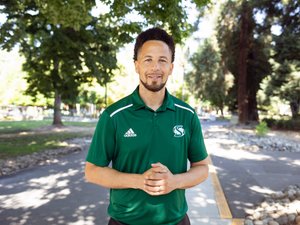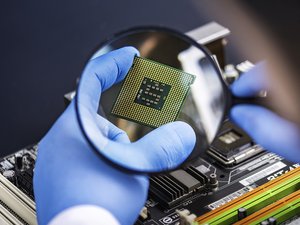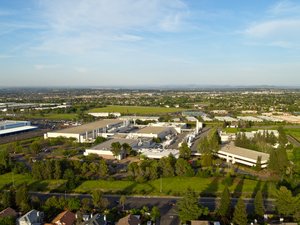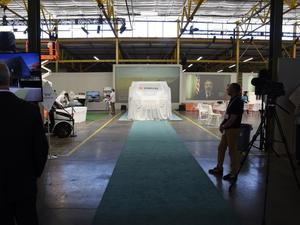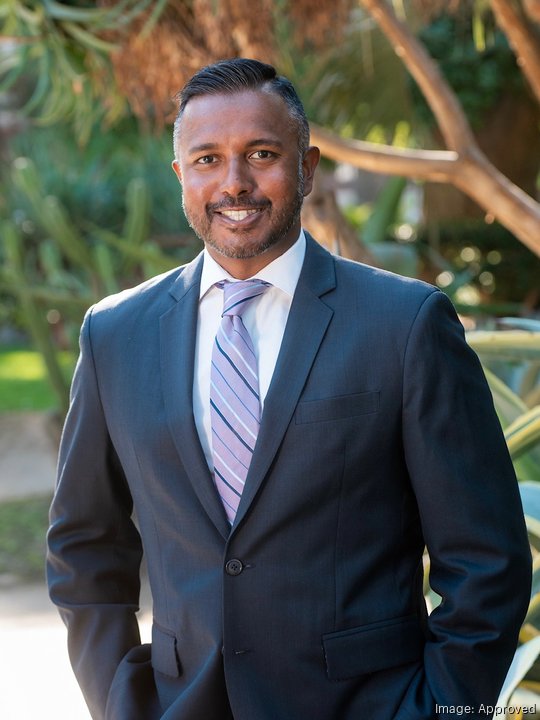
Orville Thomas has been named the CEO of the California Mobility Center, where he will lead the effort to build a global $500 million zero-emission innovation hub at California State University Sacramento.
Thomas most recently served as state policy director for Calstart, a nonprofit that works with public- and private-sector partners to create jobs in the high-tech and clean transportation industries with a focus on reducing air pollution.
“I believe in the concept that if we build it, they will come,” Thomas told the Business Journal. “We want to create a vision and then go sell that vision.”
The world is looking for strategies for zero-emission investments, he said.
“This is a significant step forward as we look to advance the California Mobility Center,” said CMC Board President Arlen Orchard, in a news release. "Orville has the expertise and industry knowledge in the mobility industry as it relates to zero-emission vehicles and clean technology.”
The CMC is currently housed in offices and a separate working shop at Depot Park, but it has long been the strategy of the center and its backers to build a larger center on the campus of Sac State.
“This project aligns perfectly with our university’s mission to prepare students for the future,” said Sacramento State President Luke Wood, in a news release. “It will expand our community impact in engineering and propel Sacramento State into a new era of technological innovation. We’re looking forward to working with Orville in his new leadership role to elevate our campus.”
A previous attempt to build a larger center for $120 million at Sac State faltered following the election last November, when Sacramento County voters rejected Measure A, which would have authorized a sales tax to fund transportation-related projects, including development of the Mobility Center.
Local leaders believe Sacramento should be home to a zero-emission technology institute since the standards being implemented by state policymakers here are mandating the world’s most aggressive zero-carbon transportation goals. Those include banning the sale of new carbon-emitting cars by 2035 and big rig trucks by 2036.
The existing CMC is in the running to be named a Tech Hub, for which the region applied to the U.S. Economic Development Administration in the summer. The distinction would make the CMC eligible for federal funding under the CHIPS and Science Act.
The local Tech Hub application had letters of support from leading zero-emission industry partners including Tesla Inc. (Nasdaq: TSLA), Rivian Automotive Inc. (Nasdaq: RIVN), Bosch, Siemens and Lion Electric, along with local supporters including the Sacramento Municipal Utility District, Sacramento State, University of California Davis, The Growth Factory business accelerator and the Greater Sacramento Urban League.
The application for a Zero-Emission Vehicle Innovation Hub was submitted by the Greater Sacramento Economic Council and Sacramento Congresswoman Doris Matsui.
“Leading the California Mobility Center has been a dream of mine since they announced the project,” said Thomas, in a news release. “This effort may be our last and best chance to create a home in Greater Sacramento for future clean transportation and energy companies, and we can do it in a way that will bring high-paying jobs and great innovations to our region.”
Prior to working at Calstart, Thomas was director of government affairs for Lion Electric. He's also previously worked for the California Immigrant Policy Center, the California Alliance for Jobs and the administration of former Gov. Jerry Brown.
“I’ve been around clean transportation for a long time,” Thomas said.
Original funding for the CMC was provided in 2019 by SMUD, which made an initial $5 million investment and committed to up to another $10 million in matching funds.
The current CMC opened in 2020 in 25,000 square feet in Depot Park, a business park on Fruitridge Road in the Power Inn Road area of Sacramento.
From the start, the long-term plan has been to develop a larger center just south of Sacramento State as part of the planned 240-acre Sacramento Center for Innovation on Ramona Avenue.
That center would be an asset for — and also supported by — the engineering schools of Sac State as well as UC Davis.
The center’s first CEO, Mark Rosekind, left the effort early in April, about six months into the job. Rosekind, a former federal transportation official, was hired to oversee a $120 million expansion of the CMC, but that effort dissolved after Measure A's defeat.
Thomas said there is money available for the right kind of project, and that money could come from the federal government, multiple state agencies, industry, foundations and university funds.
The technology behind zero-emission vehicles isn’t just restricted to transforming transportation, Thomas said, adding that technology developed at the center has applications in clean energy, power engineering, battery advancement and all sorts of electrical grid technologies and advancements.
